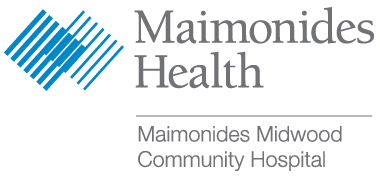Open 24/7
| Current Waiting Time in ED: 0 Min - Updated on: Feb 24 2026 5:00PM |
Hospital Charges
Maimonides Midwood Community Hospital is committed to being transparent about our charges. The information on this link contains the charges for all services and items provided by the hospital. The charges are uniform for all patients served by the hospital.
However, the hospital charges rarely reflect the expected out-of-pocket expense for a specific hospital service. Your own charges and out-of-pocket expenses will depend on one or more of the following:
• The actual patient care services received
• The terms of your insurance coverage, and/or
• Your eligibility for financial assistance
For a fuller understanding of your estimated out-of-pocket expenses, you should contact your insurer or the hospital’s patient financial assistance office at ☎ 718-692-5334
Patient Price Estimator
Machine downloadable file
Q&A
Q: What is a hospital chargemaster? Are the listed charges what I will pay for hospital services?
A: The chargemaster is a comprehensive standard price list for the services provided by the hospital (medical procedures, lab tests, supplies, medications, etc.). Because it represents the full range of services the hospital provides, there are thousands of items listed. The charges listed are generally not the amount a patient will pay.
If you have health insurance, your out-of-pocket expenses will depend on the specific services you receive, your specific health insurance coverage, and your insurance company’s contract with the hospital. Please contact your insurance company for more information.
If you do not have health insurance, you may be eligible for 1) reduced costs under the hospital’s Financial Assistance Policy, or 2) subsidized health insurance through programs such as Medicaid. Please contact the hospital’s patient financial assistance office at 718-692-5334 for more information.
Q: Are charges the same for every patient?
A: Yes, hospital charges are standard for every patient, regardless of insurance status. The total charges on your patient bill will reflect the actual services that you receive, which may vary based on several factors, including your length of stay, the time it takes to complete your procedure, medications you receive, and other health conditions that could make your care more complicated.
In addition, your out-of-pocket expenses will depend on your specific insurance coverage and/or eligibility for discounted care based on the hospital’s Financial Assistance Policy.
Q: How can I get an estimate of my out-of-pocket expenses for a procedure?
A: Patients with health insurance should contact their insurance company to get an estimate of their out-of-pocket expenses for a procedure.
Patients without health insurance should contact the hospital’s patient financial assistance office at 718-692-5334 for an estimate, information about the hospital’s Financial Assistance Policy, and whether you may be eligible for subsidized health insurance through programs such as Medicaid.
Q: Can a patient receive charges for services that are not included in the chargemaster?
A: Yes, the hospital chargemaster reflects hospital services only and does not include any professional fees such as physician services that are billed separately. For estimated professional fees, please contact your physician’s office.
Q: If insurance companies and patients without health insurance don’t pay the chargemaster prices, what do they pay?
A: Insurance companies have contracts with the hospital for discounts from charges. In addition, patients with health insurance are responsible for certain cost-sharing requirements such as deductibles, copayments, and/or coinsurance that vary by insurance plan.
Patients without health insurance can apply for support through the hospital to either receive insurance coverage (if eligible) or reduced costs through the hospital’s Financial Assistance Policy. These programs will reduce the amount owed by the patient.
Q: Why do charges for the same procedure or item vary by hospital?
A: Hospitals set their standard charges for services and items based on internal metrics, including the cost to provide patient care—which varies between hospitals. For example, charges will vary based on the location of the hospital, the availability of specialized services such as trauma and transplant services, whether it is a teaching hospital, its level of underpayment from the Medicare and Medicaid programs, and services provided to the uninsured. Again, these listed charges are generally not what insurance companies or patients without insurance ultimately pay.Visitation Policy

